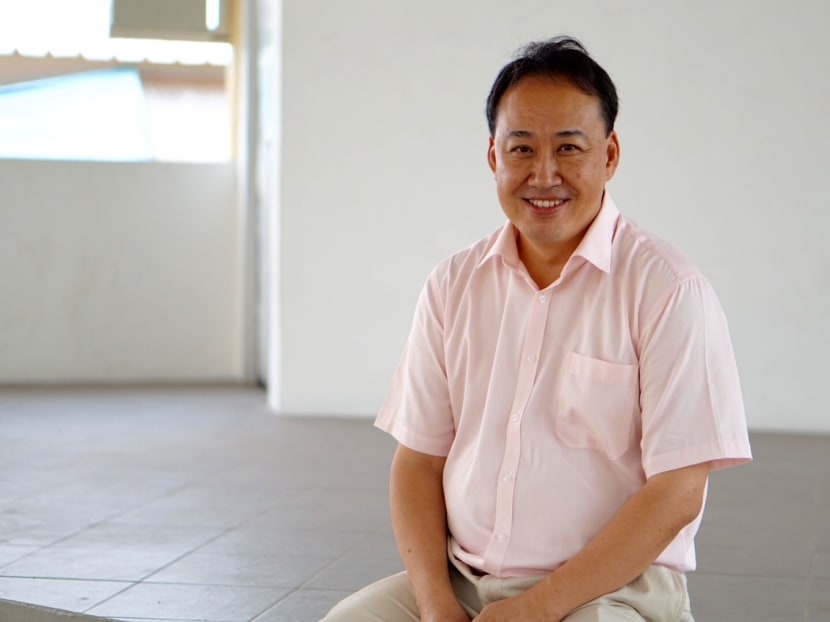NSP chief Lim Tean quits after less than 2 years
SINGAPORE — For the sixth time in as many years, the National Solidarity Party (NSP) will be looking for a new chief. On Monday (May 22), Mr Lim Tean said he was calling it quits barely two years into the post of secretary-general, citing a “fundamentally different” approach to politics between him and the party.
SINGAPORE — For the sixth time in as many years, the National Solidarity Party (NSP) will be looking for a new chief. On Monday (May 22), Mr Lim Tean said he was calling it quits barely two years into the post of secretary-general, citing a “fundamentally different” approach to politics between him and the party.
Mr Lim, 52, who had assumed NSP’s leadership shortly before the General Election in Sept 2015, announced his decision via a Facebook post, making public his letter of resignation.
This came after a string of high-profile departures including that of his predecessor, Ms Hazel Poa, who left abruptly in 2015 after returning to the post on an interim basis.
She had then cited a disagreement with the party’s decision to do an about-turn and contest the MacPherson single-member seat.
Mr Lim, who joined NSP in 2011, also resigned as a party member.
In the Facebook post, he pointed to internal party misgivings about his participation in a Speakers’ Corner event in March, where he spoke about the water-price hike, and the party’s silence on the changes to the Elected Presidency (EP) scheme.
“The turning point for me was over the issue of the 30 per cent water-price hike ... It was an issue I felt passionately about ... it was an issue that troubled most Singaporeans, and one that I thought the NSP would wholeheartedly embrace. I was therefore surprised to learn that elements in the party disapproved of me taking part in the event,” said Mr Lim, who had informed NSP president Sebastian Teo of his resignation last Thursday.
On the party’s position on the EP, which he described as “one of the greatest constitutional matters of our time”, the legal consultant said: “I eschew the type of politics where people, especially politicians, are frightened to speak up because of personal considerations. To me, that is a complete dereliction of one’s duty.”
Speaking to TODAY, Mr Teo said Mr Lim’s resignation was due to “technical” and not “opinion” problems, and the party has had longstanding sets of procedures which council members must follow.
They must tell the council about any projects or engagements they wish to take part in or carry out, and a consensus must be reached. On the Speakers’ Corner event, Mr Teo said Mr Lim did not do so: “I don’t remember that we had a discussion on that.”
But this was disputed by Mr Lim, who told TODAY that the council had known “all along” he was due to speak at the event. “It was a heated issue … and I’d have thought that the NSP … would be speaking out of concern for ordinary Singaporeans on such a major issue,” he said. “The fact that the (council) didn’t go along surprised me.”
He added that the NSP had previously decided to speak up on the EP amendments, but “changed its mind” when he raised the matter again earlier this year.
Responding, Mr Teo said the party felt that it should have a clear view of the situation before reacting. But Mr Lim wanted to do things “straight away”, he added.
The appointment of the next secretary-general will be left to the party’s council to decide, Mr Teo said, and that the matter had not been discussed yet as there was no “burning … urgency”.
In June 2015, following the resignation of lawyer Tan Lam Siong as secretary-general just three months before the 2015 GE, TODAY had reported about rifts within the party between new faces and the longer-serving members.
Political experts said the party’s rapid turnover of secretary-generals in recent years pointed to a lack of leadership stability.
Institute of Policy Studies deputy director (Research) Gillian Koh said the latest resignation suggested the party was still “unable to settle into a new equilibrium and project a clear brand and policy platform”, as well as “generate a following”, whether during or between elections. She noted that some old-guard members — including Mr Teo, 69, who has been party president since 2006 — would also have “rather strong views about what the party should or should not do”.
Singapore Management University law lecturer Eugene Tan said the constant departures could indicate “deep internal differences within the party elites” and significant issues which the party must resolve.
It also raises questions about leadership renewal and points to “difficulties” in attracting and retaining younger party members within its leadership. “The question’s whether the party can better accommodate differences in views, and having a process by which these differences can be managed would be important,” added Assoc Prof Tan.









